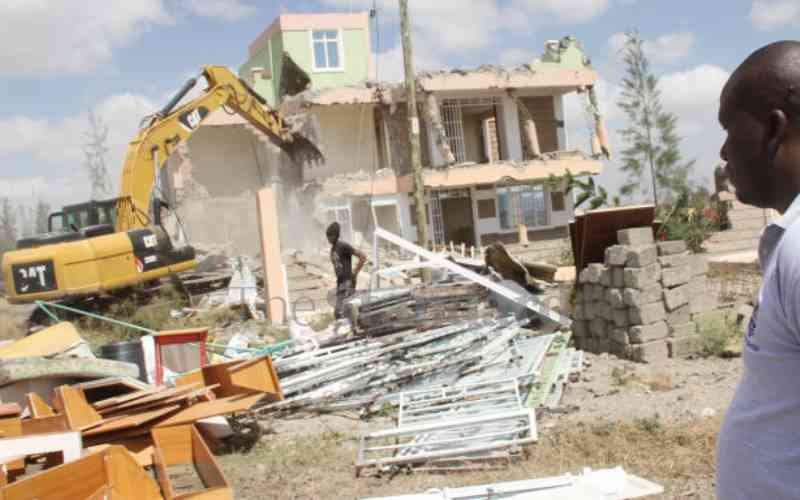×
The Standard e-Paper
The Standard

Even as the controversy on East African Portland Cement land saga boils over with an outcry following demolitions of houses and other structures by what the government says are illegal settlers, we revisit how the story has unfolded in this piece that was first published by The Standard in 2015.
Kenya's oldest cement maker is about to lose a Sh40 billion parcel of land in what could be the biggest land heist to hit a corporate entity in over a decade, Business Beat can report.